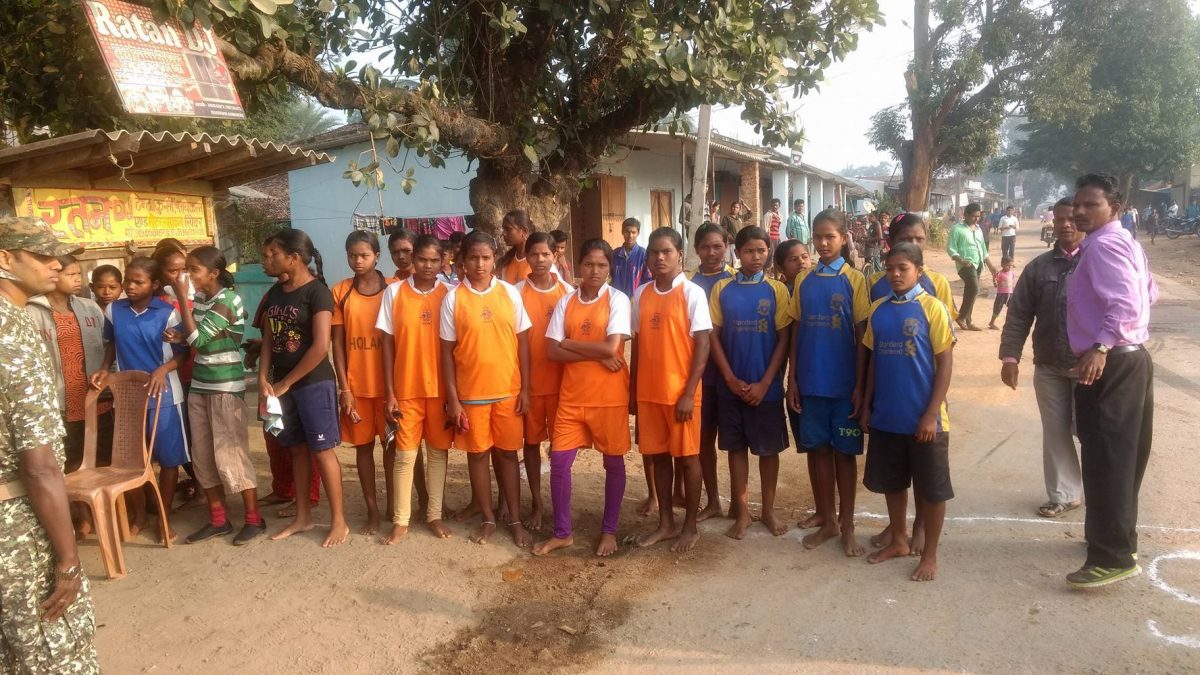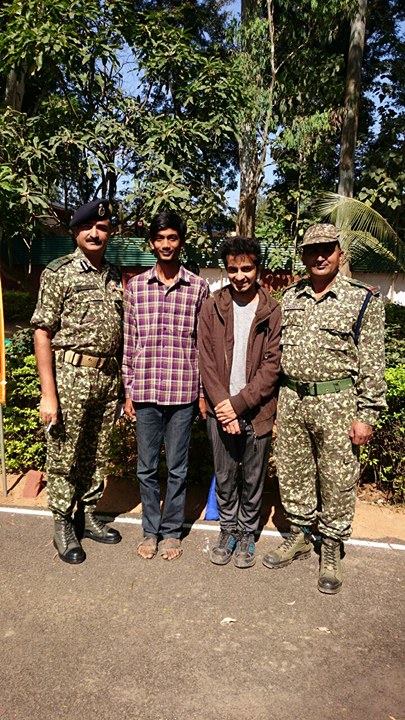December 10 is celebrated every year as World Human Rights Day to mark the adoption of the Universal Declaration of Human Rights that assures universal and inalienable human rights for all. Surinder Khatri is going over and above the call of duty to achieve this goal for the people in a remote area of Chattisgarh.
The tribal population of Kondagaon, living in a remote area with Naxalite conflicts, has been deprived of their basic human rights for a long time. Surinder Khatri, an Indo-Tibetan Border Police (ITBP) commandant posted there, has been working on changing the situation since his first deployment there in 2015. He uses various initiatives to provide sports training and education facilities for the tribal students in the government schools in the region.
Abhay Jain first met Mr. Khatri in 2014 in Shivpuri, where he was closely involved in counseling for underprivileged students. After that, he got transferred to Khorda and Kondagaon, where he has continued to carry out his amazing work. Mr. Khatri’s story is one of remarkable courage, enterprise, and passion for service. He is an inspiring person, working hard for the promotion of human rights, and is responsible for changing the way people see the Army in Kondagaon.
Surinder Khatri joined the ITBP in 1993 as an Assistant Commandant, and served at the Indo-China border at altitudes of 12,000 to 16,000 feet in Leh and Uttarakhand for eight years. He always showed determination and innovation, even under the toughest circumstances. He once had a rope bridge constructed over a 100-metre-wide frozen river without using engineers, at sub-zero temperatures.
In 2002, he served with the United Nations Mission in Bosnia for a year. Under his leadership, the ITBP also conducted a force-level river-rafting expedition in the River Ganga from Devprayag (Uttarakhand) to Gangasagar (West Bengal), covering approximately 2,400 km. in 72 days, to propagate the message of ‘Clean Ganga’.
After observing that the local tribal youth in Kondagaon had a lot of untapped potential, Mr. Khatri assigned officers from ITBP to impart sports training in archery, judo, karate, and other sports to the children there. Under his aegis, ITBP officers began conducting various initiatives with the tribal children and youth to tackle the problem of under-development and lack of resources in the area. Mr. Khatri firmly believes in the ability of sports and education to transform individual lives, as well as the lives of the tribal communities as a whole.
Assistant Commandant Ashish, who is posted in Mardapal, just 3 km. from the core Naxalite zone, shares his civil initiatives with us. He recently conducted counseling for the students residing in the tribal hostels of Mardapal. His unit also conducted a race for the girls studying in the tribal hostels and gave them T-shirts during the race. According to Mr. Ashish, the problem – more than the Naxalite tension – is the lack of adequate facilities for the youth.
Trilochan Mohanta from the ITBP, who has been an national-level archery player, has begun training the local students to represent the state in national-level archery competitions. He envisions tribal students representing the nation in international sports arenas someday. Archery has also been a traditional practice of tribal communities. Thus, teaching archery to the youth there is also reviving the lost traditional practices of the communities.
Jawan Jayprakash from the ITBP has been working incessantly to provide judo training to tribal students in the area. He is very proud of the judo team from Kondagaon who have qualified for block-level and state-level sports competitions for the first time. The students have already been representing Kondagaon at various levels in wrestling.
Under the direct leadership of CO Khatri, the ITBP’s 41st Unit has been conducting many sports events and civil initiatives in the core Naxalite areas. This is a huge step forward towards restoring peace in one of the most disturbed regions of India. Through these civil initiatives, the ITBP forces interact with local populations and help bring about positive reform. Their initiatives are giving new hope to the local youth, and repairing the relations between the force and tribal populations.
IDIA recently witnessed the dedication of Mr. Khatri in reforming the local youth of Kondagaon first-hand. He helped the IDIA Chhattisgarh chapter conduct sensitisations for tribal students in Kondagaon about opportunities for pursuing legal education. Mr. Khatri hosted IDIA’s student volunteers when they visited Kondagaon, and helped in contacting the District Collector for the sensitisations. Mr. Khatri has also agreed to assign an officer to teach English to interested students in the government schools. Language skills will help them access new opportunities in education and employment.
Mr. Khatri believes that students in the local population have immense untapped potential in sports and education. He talks proudly about how some of the local tribal children were better than ITBP Jawans in many sports. One of them even broke the record of a national-level player. Mr. Khatri believes that with proper facilities and exposure, the children can transform themselves and their communities, and eventually the nation.
We salute the endeavours of Mr. Khatri to protect and promote the human rights of tribal populations. His efforts show that each of us can do our bit to bring about a change for a better India.
This article is written by Abhay Jain from the IDIA Research and Policy Programme, and Swati Agrawal from IDIA.
For more information on how to contribute to making education and law accessible to all, visit the IDIA support page.
Like this story? Or have something to share? Write to us: contact@thebetterindia.com, or connect with us on Facebook and Twitter.
NEW: Click here to get positive news on WhatsApp!
If you found our stories insightful, informative, or even just enjoyable, we invite you to consider making a voluntary payment to support the work we do at The Better India. Your contribution helps us continue producing quality content that educates, inspires, and drives positive change.
Choose one of the payment options below for your contribution-
By paying for the stories you value, you directly contribute to sustaining our efforts focused on making a difference in the world. Together, let's ensure that impactful stories continue to be told and shared, enriching lives and communities alike.
Thank you for your support. Here are some frequently asked questions you might find helpful to know why you are contributing?


